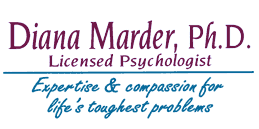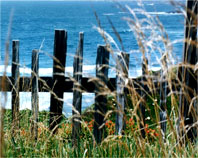
What Is Focusing?
A way of trusting and living from your deepest inner truth.
A way of keeping in touch with your creative life energy.
A way of moving from self-criticism to self-nurturing.
NEXT
George was one of my clients who especially benefited from Focusing. One day he was telling me that he had not been able to go to sleep without a sedative for years. Every night he lay awake, thoughts whirling, filled with unnamed anxieties, unable to stop torturing himself with his inadequacies. Since George already knew something about Focusing, I asked him if he could just sit quietly, sensing the anxiety in his body, and he agreed to try. Soon he said, "I'm afraid of being found out--they'll find out I'm not really perfect.""O.K." I said; "let's just sit with that." George was quiet for a moment, then he grinned widely and threw his arms up in the air. "So find me out!’ he exclaimed. ‘Tell the world! I'm not perfect". He shook his head. "I can't believe it! What a change!"
Where did Focusing come from?
Over 20 years ago at the University of Chicago, psychologist/ philosopher Eugene Gendlin and his colleagues asked the question "Why does psychotherapy so often fail to make a real difference in people’s lives?" Gendlin and his colleagues found from their analyses of thousands of audiotaped therapy sessions that "successful" clients could be picked out in the first two sessions. Therapist orientation made no difference, nor did anything about content. Rather, successful clients were those who paid a certain kind of inward attention, who groped for words and seemed to be struggling to express a clearly felt but vaguely defined sense of their difficulties. Today we refer to this as the "felt sense".The felt sense is a bodily-sensed whole that includes all the thoughts, feelings, perceptions, and memories relevant to the meaning of any difficulty in one’s life. It is the fuzzy edge that still remains unexpressed after one has said "I am angry", or frightened, or sad. The felt sense is the "it" we mean when we say "I can’t quite put words to it". Gendlin found that clients who knew how to refer to this felt sense got better; others often did not. Over ten years of research led to the development of Focusing as a method of teaching people to attend directly to that felt sense. Since then, Focusing has spread to over 12 countries. It is used within psychotherapy, as a self-help skill, and as a peer-counseling and support group technique.
Transforming Negative Feelings
Your body knows that every hurting place, treated with loving attention, contains the seeds of healing and growth. Every ugly feeling, every negative "hang up", points the way to a healthier way of being, if it is heard with patience and compassion. What is not felt, remains the same. When it is felt, it changes. Most people do not know this. They think that by not permitting themselves to feel or acknowledge negative feelings, they can make themselves feel good. "It is wrong to feel jealous (envious, resentful, vengeful, etc.)", we tell ourselves. For a moment we may change the way we feel, but soon it all comes back. Not permitting ourselves to feel this negative stuff keeps it locked away where it remains forever the same. A few moments of feeling it in your body, however, allows it to change. If there is something in yourself that is bad or sick or unsound, let it inwardly live, and breathe. That’s the only way it can evolve and change into the form it needs to be. Focusing shows you exactly how to feel your negative "stuff" in the way that allows it to change. Here is one person’s story of a bit of Focusing:
Whenever my boyfriend let me down I felt an urge to "punish" him by withdrawing. I felt ashamed of this impulse, knowing it was immature and counter-productive. But I couldn’t change it. One day, when he failed to show up for a date, I decided to just sit down and let myself be with the feeling. First, I was most aware of a cold, hard feeling in my chest, something like indifference. As I stayed with it, it softened a little, and I felt something in my throat. After a while it came into focus as anger mixed with fear. "Fear?" I asked. Yes. As I imagined speaking up, fear gripped me. I stayed with that awhile, noticing the sinking feeling in my chest and stomach. As it intensified, I realized I was imagining he would reply with something implying that I had a heck of a nerve to think I had any rights in this relationship--that I counted that much. As I thought about that I relaxed; I knew that that fear didn’t make sense here, and I also knew that I would call him to find out what had gone wrong.
Focusing Is Not Just For Problems
Focusing can be used to…Make decisions more easily and with greater confidence
Help you figure out where you need to go next in your life
Overcome writer’s block, or make your writing say what you really want
Overcome blocks to doing things you need and want to do, such as exercising or eating better
Know yourself more deeply
Be more in touch with your body’s messages about your health
Experience positive feelings more fully and deeply
Focusing is being taught to children in schools, used for pain control and healing work, and many, many other areas of life. Visit www.focusing.org for more information on these applications.
Here's What Some Focusers Say About Their Experiences:
"Focusing has given me a profound respect for the wisdom of the body-mind."
"Through the years Focusing has been a support and guidance through many challenges that aren’t supposed to have a good outcome, but which, with Focusing, have proved to be growthful and spiritually expanding times for me. I don’t think you can ask more of a way of being in the world than that".
"Focusing takes some real work and practice, but it’s added a new dimension to my life. I can honestly say I know myself better and quite honestly, I’m liking who I’m getting to know. All along I was looking for something to center myself, and that’s what’s so beautiful about Focusing. It takes your body and mind and soul and makes them one. Focusing has made me know that where I am is where I need to be; it’s allowed me to be myself and to be O.K. Focusing has given me a profound respect for the wisdom of the body-mind."
Community
One of the beauties of Focusing is that it does not require a therapist. Although it is possible to Focus alone, for most people it is far easier and more rewarding to Focus with a partner. A unique kind of intimacy arises when people Focus together. Journeying together with someone who is courageously exploring her most deeply, authentically felt ‘places’ is an honor that must be experienced to be understood. Conversely, to feel utterly safe in the interested, supportive presence of another person, while exploring your own deepest self, is a rare and precious experience. In fact, it is somewhat addictive, and most people who experience this a few times decide to form Focusing partnerships. Two people meet regularly at an agreed-upon time and place and share Focusing. One person Focuses while the other listens and keeps company, then they switch. A long-lasting Focusing partnership often becomes one of the central relationships in one’s life. Of course partnerships can also be brief, as suits the needs of each partner. And unlike marriage, there is no problem with having multiple partners!
The Focusing Institute now has a partnership project, helping to match people needing partners, and more and more people are Focusing with each other by phone.
Focusers also enjoy meeting regularly in small groups (sometimes called "Changes" groups) to share Focusing either with or without a facilitator. Everyone who completes one of my two-day workshops is eligible to join an on-going, low fee Focusing practice group, and to be added to a data bank of people who wish to share Focusing with each other. After a little practice, you can join the free "changes" group now being formed.
How Can I Learn Focusing?
Focusing can be taught individually or in small classes and workshops. Most people prefer learning in a group because they enjoy the companionship, the opportunity to learn from watching others, and the chance to meet potential Focusing partners. Six to twelve hours of group instruction, spread out over two days or six to eight weekly classes, will often be enough to allow you to begin Focusing with a partner. I provide workshops and individual training in Long Beach and Huntington Beach, California.
In the San Francisco bay area, check www.focusingresources.com ; this site also has a wealth of further information about Focusing.
The International Focusing Institute, www.focusing.org, lists Focusing trainers across the USA and the world. The Institute also has many books, audio, and videotapes about Focusing and information on many different applications.

